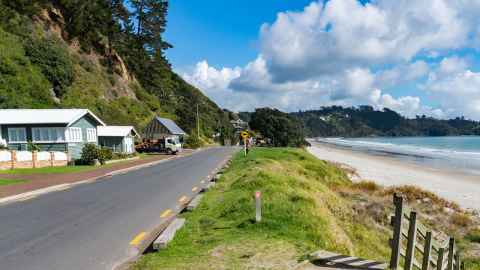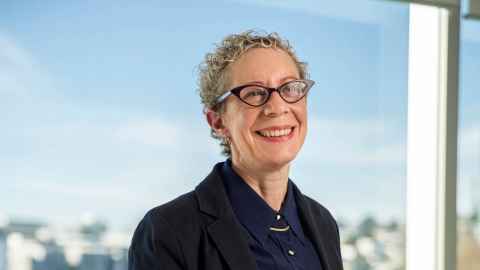Study explores financialisation of Waiheke baches
26 March 2024
Using Waiheke Island as a case study, researchers looked into the complex and sometimes contradictory ways people view their properties.

Aucklanders’ views of their baches have shifted over time, with ideas of an idyllic family retreat being complicated by greatly increased property values, say the authors of a paper exploring the financialisation of holiday homes on Waiheke Island.
The Kiwi bach used to be very much about simply investing in family and holidays, says University of Auckland researcher Professor Deborah Levy.
“You didn’t worry if it was shabby, the paint was peeling, or the walls were wonky because it was an investment in weekends, holidays, children and family time. It wasn’t financial; you weren’t planning to rent it out a few weeks a year on Airbnb or sell it as soon as possible to make a decent gain. This is no longer the case.”
Financialisation, says Professor Levy, takes place when housing is treated as a commodity - a vehicle for wealth and investment rather than a social asset.

In their study, Levy and fellow researchers Emeritus Professor Harvey Perkins and Dr Jane Horan, set out to explore how financialisation is playing out in the everyday lives of Aucklanders who own a holiday home on Waiheke, an island which has experienced substantial property price increases over the past decade.
Waiheke, says Levy, was an ideal place to study the complex and often contradictory nature of housing financialisation and potential biases in the housing market, thanks to its popularity as a visitor destination, its location, which is a 40-minute ferry ride from downtown Auckland, and the increase in property prices the island has experienced over time.
The idea of having a bach on Waiheke as a dedicated family space was a recurring theme in the in-depth interviews the researchers undertook. However, they found that, when faced with rapidly increasing property prices, many long-term owners reluctantly started to view their holiday home as both a recreational and financial asset.
“Everyone we talked to said they didn't buy their homes on Waiheke with the sole goal of making money. However, some who had bought their holiday homes more recently, mentioned that the option to rent out their places to vacationers for weekends or short stays was a key factor in their decision to buy.”
Levy says that as some interviewees became aware of the increasing prices attached to Waiheke properties, their views on their holiday homes shifted.
“Our study reveals that although they still value and interpret their holiday houses as home and a place of recreation, issues associated with finance are now also often at the forefront of their minds.”